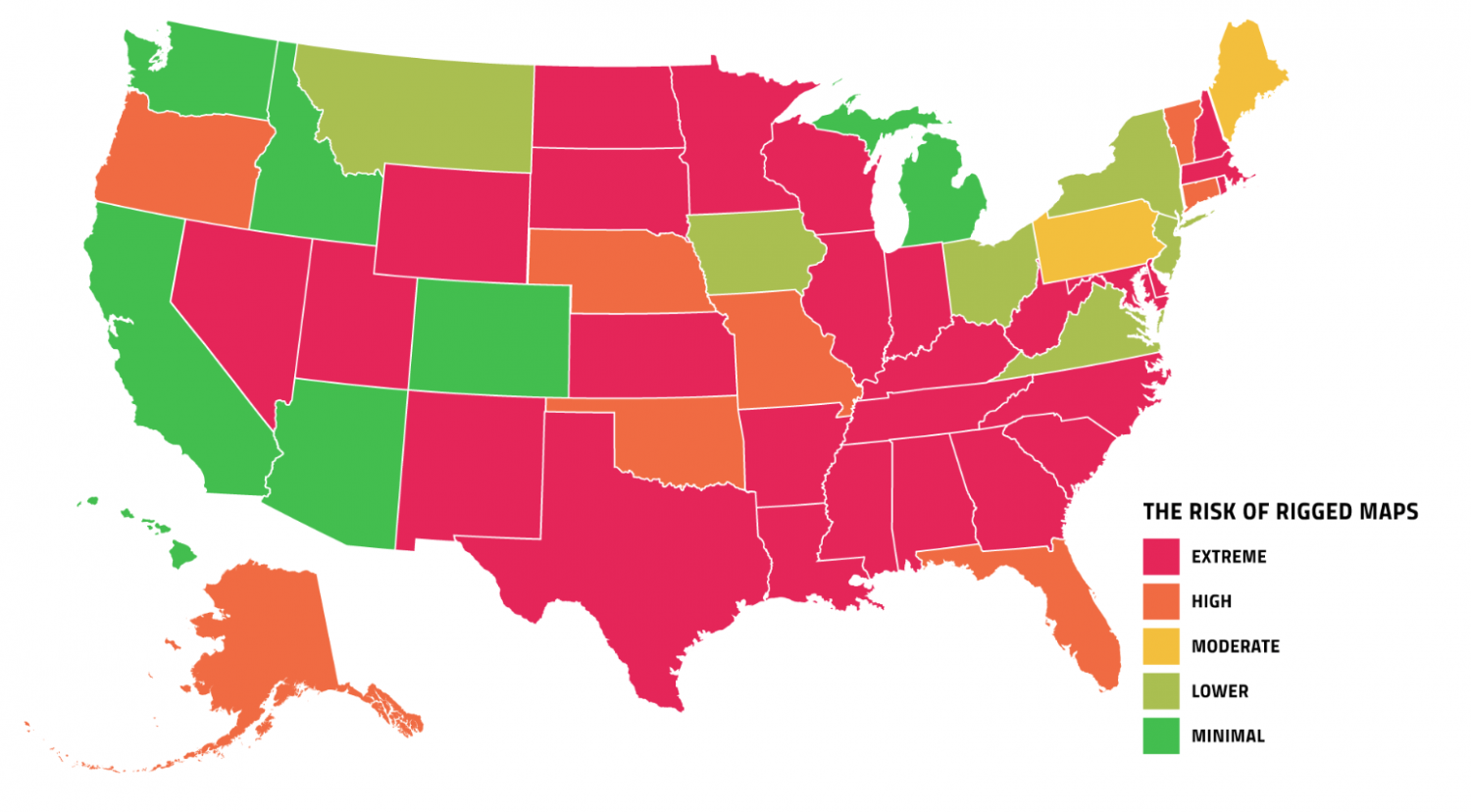Vidya Sethuraman
India Post News Service

Ethnic media services invited minority representatives from North Carolina, Texas and South Carolina on Jan 14th to discuss the issue of redrawing constituencies in the United States in 2022. Redistricting is now finished in over half the states and may not significantly change the overall distribution of seats between the parties nationwide. Civil rights groups for African-American, Latino and Asian Pacific American communities in select southern states say the new district redraws fail to reflect the interests of minorities, the fastest-growing racial group in the past decade.
Mitchell Brown, Voting Rights Counsel at Southern Coalition for Social Justice, said they filed a lawsuit in a local court a few weeks ago, arguing that the 2022 district redrawing did not take into account the demands and interests of the African-American community, whether at the state or federal level, and that some areas where African-Americans gathered were scattered into different districts constituencies, making it impossible for them to form coalitions. The new district redrawing will cause these African-American representatives to work harder to be elected.
Brown’s organization recently filed a lawsuit in the state court challenging NorthCarolina’s maps because the legislators ignored the racial data when they drew the districts. Although they lost the case, the state Supreme Court is hearing the appeal arguments on February 2. Texas gained two new seats in Congress based on census data, a growth fueled by people of color. But the maps drawn do not reflect these communities and instead make the new districts more white and safer for Republicans.
Deborah Chen, Esq., a community activist with OCA-Asian Pacific American Advocates said the redrawing of Texas districts also challenges Asian Pacific American interests. The current constituency-redrawing map does not reflect the demands of most population-growing communities. She believes that the redrawing of the constituency in Texas did not have enough public opinion. She complained that the State Senate did not provide online participation of the public, and the discussions of the State House of Representatives had to be scheduled online, resulting in many people being unable to participate in the discussion. She said that the minority population in Texas has grown rapidly in the past decade, and 50% of the new growth population is Latino, but the increase in the population of Texas has resulted in two new federal seats, ignoring the interests of people who really need their representation.

Charles Mann, an intern in South Carolina’s re-election district, said the current South Carolina’s new electoral district-redrawing map has entered the final stage of the bipartisan tug of war. The biggest problem in the local area is that many people do not understand the significance of electoral district redrawing at all.
Sean Morales-Doyle, Acting Director in the Democracy Program, Brennan Center for Justice said we are starting the year off with more bills restricting access to voting pending in state legislatures than we normally see in an entire year. Congress needs to act and pass the John R. Lewis Act (pending in the Senate), it will restore the voting rights and stop maps from being drawn in a way that discriminates against voters of color,” he concluded.







